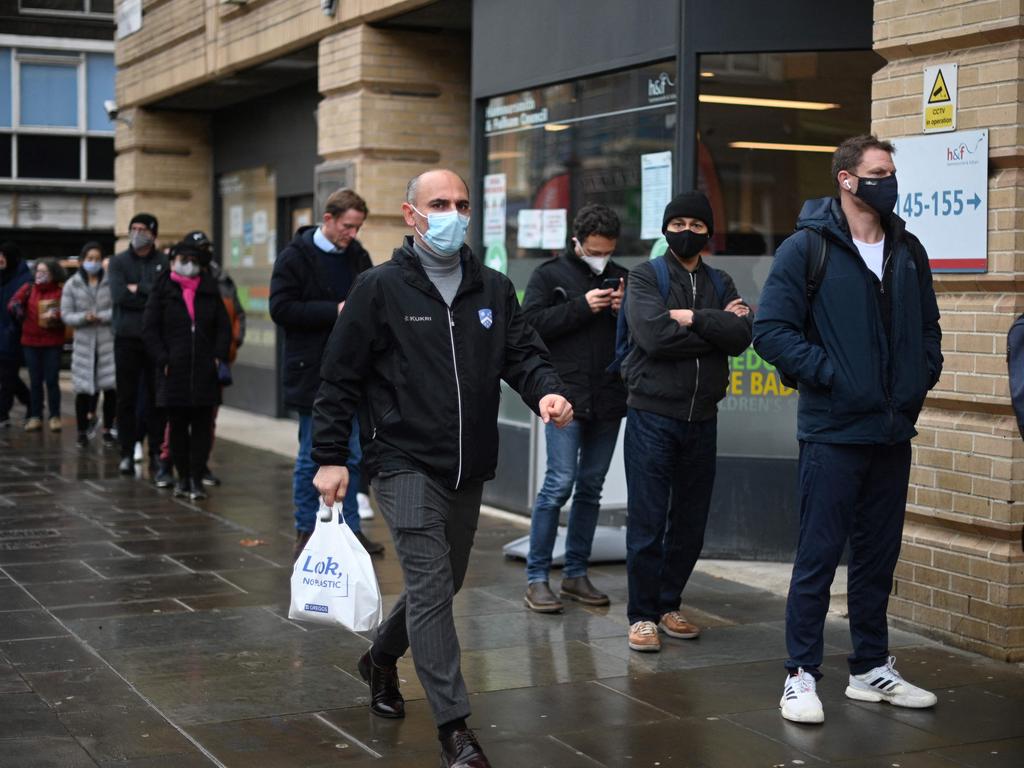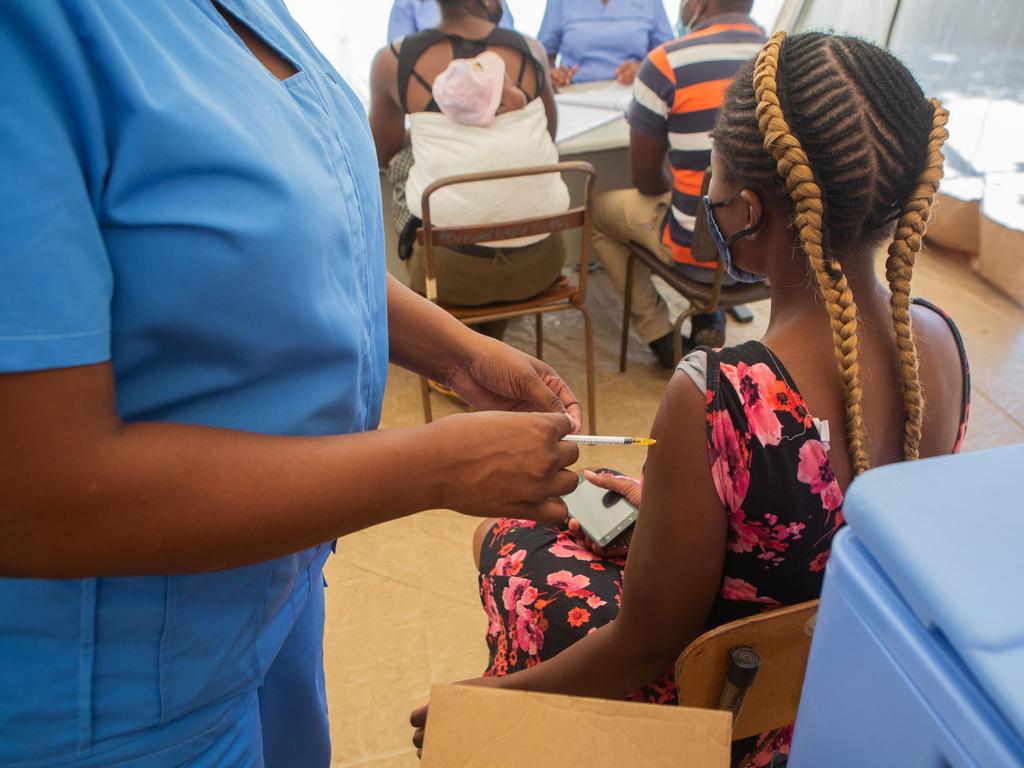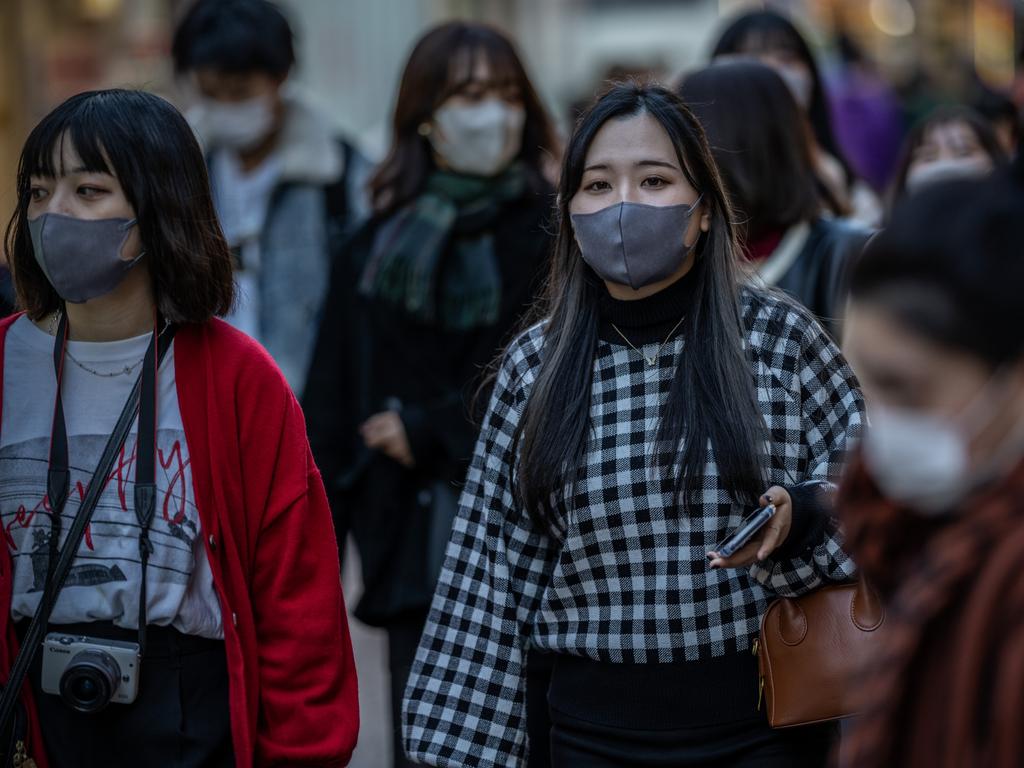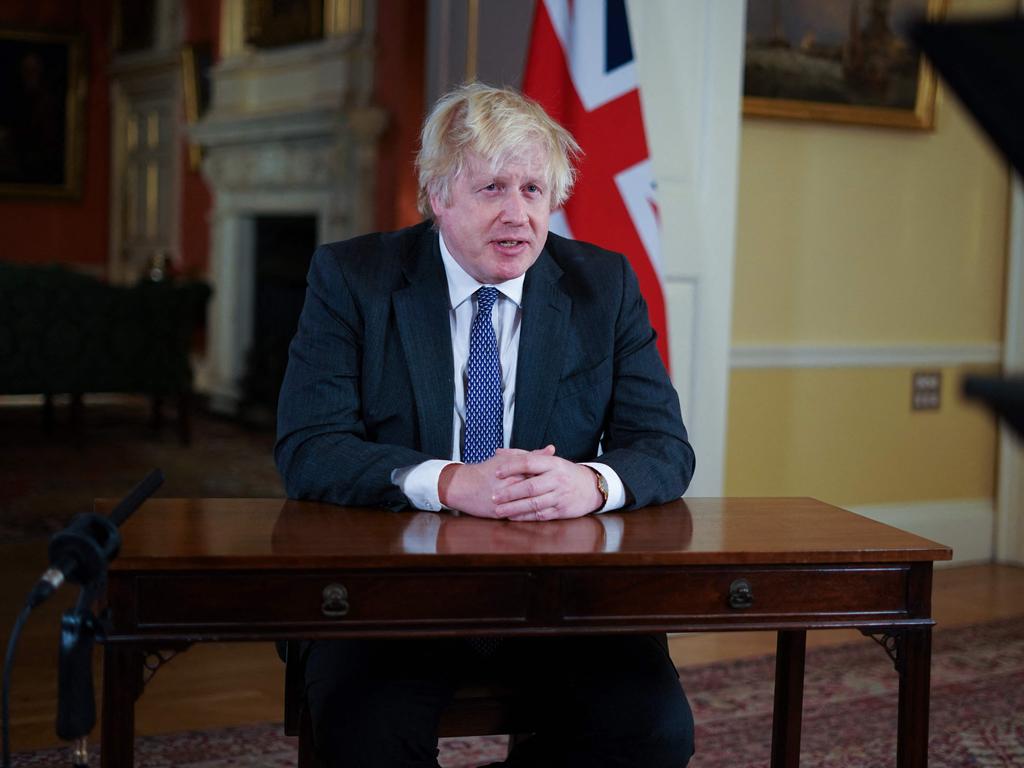Omicron outbreak: What the science says, how the world is reacting
World leaders and scientists have been quick to react to the new Omicron variant which has sparked new restrictions and booster jab warnings. This is what we know so far.
The emergence of the Covid-19 Omicron variant has sent researchers around the world in a spin.
Early evidence suggested the new variant had a milder impact on its targets. But in recent days countries like South Africa and Britain are reporting exploding hospitalisation rates.
On Monday, British Prime Minister Boris Johnson also confirmed the country’s first Omicron death. It’s also thought to be the first confirmed Omicron death in the world, although the real figure is not known because of a lack of testing in countries like South Africa where the variant is running rampant.
“Sadly, yes, Omicron is producing hospitalisations and, sadly, at least one patient has been confirmed to have died with Omicron,” Mr Johnson said.
“So I think the idea that this is somehow a milder version of the virus, I think that’s something we need to set on one side and just recognise the sheer pace at which it accelerates through the population.”
Should we panic? This is what the research says.

DO VACCINES WORK TO STOP OMICRON?
Studies suggest Omicron can escape the protection given by vaccines.
Pfizer and BioNTech say a third dose of their Covid-19 vaccine neutralised the Omicron variant in lab tests — but warned two doses was significantly less effective at blocking the virus.
Blood samples from people who had received two doses of the current vaccine showed on average a 25-fold reduction in neutralising antibodies compared to the early strain of the virus, the companies said.
But a booster third dose generated around the same level of antibodies against Omicron as is seen after a second dose with other variants.
“Although two doses of the vaccine may still offer protection against severe disease caused by the Omicron strain, it’s clear from these preliminary data that protection is improved with a third dose of our vaccine,” Pfizer Chief Executive Albert Bourla said in a statement.
Studies from South Africa, Sweden and Germany showed similar results.
Early data from South Africa indicates that two doses of the BioNTech/Pfizer vaccine are largely ineffective against the variant. Immunity was stronger, however, for those who had also had prior infection.
In Germany, research shows the Omicron variant can beat all the vaccines in use in Europe but a third dose provides some protection.
Similarly in Sweden, results of a study found several outcomes including little loss of immunity to a 25-fold decrease in neutralisation of antibodies.

WHAT ARE THE SYMPTOMS OF OMICRON?
Doctors working in South Africa, where the Omicron variant was first detected, said the main symptoms are fatigue, body aches and a headache.
This differs from the three main symptoms of Covid-19, which include a new persistent cough, a high temperature and a loss of taste and smell.
Patients have not been reporting a loss of taste and smell with Omicron, Dr Anglique Coetzee, chair of the South African Medical Association, said.
And parents are being warned of an “unusual rash” that has been linked to cases of the new strain in children.
Dr David Lloyd, a GP based in north London, said the rash linked to the new variant had primarily been seen among younger age groups.
Around 15 per cent of children who have been confirmed as having the strain had reportedly developed a rash, he said.
As a result of the new signs, coronavirus cases are “being missed” as people are looking for the wrong symptoms, experts have warned.

HOW ARE OTHER COUNTRIES RESPONDING?
Countries are tightening restrictions and slapping travel bans, despite the World Health Organisation saying they are not necessary as the Omicron variant is “already everywhere”.
The UK has banned flights from 11 African countries, a move mirrored by Australia which has banned flights from nine African countries.
Israel has added Britain, Denmark and Belgium to its “red” list of countries that Israelis are forbidden to visit, citing concern over the spread of the Omicron variant. Israel has already banned the entry of foreigners to try to stem Covid infection rates and imposed three to seven day self-isolation orders for Israelis returning from abroad.
Japan closed its borders to all new foreign arrivals again until December 31. It is undecided when regular tourists will again be able to enter the country.
European countries have placed stricter restrictions on unvaccinated people as winter approaches. France requires a health pass for access to restaurants, bars, planes and trains, while Austria and Cyprus are among other EU countries to have used similar schemes.
In mid-November, Austria imposed a lockdown for the unvaccinated.

Italy has barred the unvaccinated from many public activities. A Covid Super Green Pass, which shows proof of vaccination, or recovery from the virus within the last six months, is needed to enter theatres, cinemas, music venues, sports events, restaurants and bars until mid-January.
Germany’s leaders, meanwhile, have agreed to ban unvaccinated people from many public venues, and Greece announced monthly fines of €100 (about $A159) for anyone over 60 who remains unvaccinated.
Norway announced it will introduce a fourth round of measures which bans serving alcohol in bars and restaurants, closing gyms and swimming pools to most users and stricter rules in schools, among other things.
“There is no doubt – the new variant changes the rules. That’s why we need to act fast and we need to act again,” Prime Minister Jonas Gahr Stoere told a news conference. “For many this will feel like a lockdown, if not of society then of their lives and of their livelihoods.”
In the UK, people have been ordered people to work from home and use vaccine passports to attend nightclubs and soccer matches. And Britain's’s Health Secretary Sajid Javid said the government will update the definition of what it means to be “fully vaccinated” to include the third booster shot. And under new regulations, people could be fined £10,000 ($A18,000) if they try to falsify a Covid pass or test result.
More Coverage
Originally published as Omicron outbreak: What the science says, how the world is reacting





